In the town of Rima, in the Yabroud area near the western Damascus countryside, Jamal Zainia, better known as Abu Malik al-Tali, along with about ten fighters from al-Nusra Front group started their journey in 2012.
A branch for al-Nusra Front was established in a town near the Aleppo-Damascus international road in the western Qalamoun region, by bringing in a number of its “foreign” fighters in addition to some Syrians who were trained in military camps.
In 2011, al-Tali was released from the military prison of Sednaya (Islamists section), after spending about eight years inside it and other prisons, on charges of membership in Salafism and dissemination of “al-Jihadist” thought via CDs, as he was one of the participants in the course of the prison riots, which took place in 2008.
The most powerful controller in western Qalamoun
Al-Tali gradually expanded his Salafist jihadist group’ s cells in western Qalamoun and began setting up military training camps, which had several young Syrians, mainly from the rural areas in Damascus and Homs.
Al-Tali did not show the power and control of “al-Nusra Front” over the region until its fighters were well-trained and equipped, and its headquarters were set up properly and thoroughly.
Just a few months earlier, al-Tali left the battle of al-Tall in 2012 and withdrew, together with “the Free Syrian Army” fighters from the city of al-Tall, where most of whom resettled in the western Qalamoun region.
After that, al-Tali became the key mind in conducting military issues significantly after the fall of Yabroud in the hands of the Syrian regime in March 2014, the man who controls prisoners’ exchange deals—such as the deal of Maaloul nuns in 2014, and the deal of the Lebanese army prisoners in December 2015— and the most famous man in the Qalamoun region on the Syrian and Lebanese media.
Al-Tali lost several battles and won two
In Rima and then the “al-Mahabba Villas Project” in the town of Rankos in western Qalamoun, the headquarters of “al-Nusra” were spread.
At the beginning of 2013, al-Tali fought his first battle in the region, after participating in the battles of Fakhuk in Halbon area.
These battles make al-Nusra Front accepted by the people, due to the stability of the fighters on the battlefronts, amid the absence of barricades and tunnels. Consequently, al-Nusra became a target for the artillery shells of the Syrian Republican Guard Division and the Fourth Armored Division in the Syrian regime forces, deployed in the western countryside and mountain ranges in the Barada River Valley (Wadi Barada), al-Zabadani, and Serghaya.
Al-Tali lost his finest warriors in the battles that took place in Fakhuk. In addition, the opposition factions withdrew from Fakhuk, because many considered it useless and a drain of the fighting forces.
Al-Tali was accused that he was continually seeking to control Fakhuk in order to keep the road open to the city of al-Tall, the gateway to control the Syrian capital, Damascus, according to repeated statements released by al-Tali in front of his supporters and during meetings with members of other factions.
In August 2013, al-Tali drew back from involvement with “Jaysh al-Islam,” “Maghaweer al-Qusayr,” and other factions in the attack on the arms warehouses of Denha near the village of Sarkha.
Hours later, the opposition factions withdrew from Denha’s arms warehouse, after seizing for the first time in Syria anti-armor missiles. Then, al-Nusra attempted, under the leadership of al-Tali, to control it. The battle, in fact, lasted for about two days, where al-Nusra was able to control parts of the area. However, al-Tali was wounded and lost more of his fighters and another round of the battle because of the nature of the land and the absence of anti-missile weapons.
Nuns of Maaloula
Al-Tali started his third round in September 2013, during which “al-Nusra Front,” along with other factions, took control over the town of Maaloula in Rif Dimashq for the first time after capturing its checkpoints. Yet, the factions retreated from Maaloula to enter it again in December 2013, in order to reduce the pressure on the opposition factions in the battles of al-Nabek.
Al-Nusra Front succeeded in controlling the town of Maaloula and moving the nuns of the town to Yabroud to begin the series of negotiations, therein, al-Tali achieved his first victory.
The Syrian regime had started with the support of the Iraqi militias and the Lebanese “Hezbollah” forces since November 2013, wresting control of the cities and towns of Qalamoun one by one, following the battles in Mheen in the eastern Homs countryside, which the factions of the “Free Syrian Army” and “al-Nusra” succeeded in controlling, to register the second and last victory in the critical battles.
Al-Tali maintained his points of control in the town of Rima, which is considered a primary defensive line for the city of Yabroud until the nuns of Maaloula were handed over on 10 March in a deal during which 152 female detainees were released from the regime’s prisons.
However, the front lines collapsed after the end of the female detainees-nuns exchange operation, and the Syrian regime announced its control of the city on 16 March 2014, after the FSA factions withdrew from the city and left strategic points. Thus, the city became up for grabs.
After nearly 40 days, the regime extended its control over all the villages and towns in the area and expelled the factions and al-Nusra Front. And this was added to al-Tali’s other defeats.
Enab Baladi learned from sources close to “al-Nusra Front” that al-Tali did not obey the orders of al-Julani, to withdraw from the mountains separating the villages and towns of the western Qalamoun and the Lebanese-Syrian borders.
Al-Tali expanded his influence in the region, despite the departure of several foreign fighters,” as instructed by al-Julani.
From being brothers by Islam’s approach to Kharijites
Al-Tali did not accept a decision by the FSA to eliminate the elements of the so-called Islamic State (IS), considering those who might cause harm to the IS elements as if they are doing this to one of “al-Nusra Front’s” elements.
The relationship between “al-Nusra Front” and “the IS group” remained strong after moving to the Qalamoun Mountains despite the clashes in the Syrian lands between the two parties in the remaining regions.
When IS’s elements clashed with the Lebanese Armed Forces (LAF) at the checkpoints in August 2014, al-Tali had a widespread media presence after he entered the battle and captured Lebanese soldiers and policemen.
At that point, al-Tali started a new round of negotiations with the Lebanese authorities; he released some prisoners as “goodwill.” However, he executed two people: Muhammad Hamiyah and Ali al-Bazzal, by firing squad: Al-Nusra Front exchanged the Lebanese soldiers it was holding with prisoners held in Lebanon.
Al-Tali highlighted that “The jihadists in the Lebanese town of Arsal had no role in the battle, but they were driven to the battle because of the wrong action of one of the groups. After that, the LAF caused a humanitarian catastrophe. It raided Syrian refugee camps in Arsal deliberately. “That triggered al-Nusra Front to enter the battle,” according to what was published by al-Jadeed TV through a leak in August 2017.
The arrival of three IS leaders to the region, whose elements did not exceed 40 was the beginning of a reversal of matters.
The three IS leaders invited Abu Malik al-Tali to a debate with his legitimates, and after meeting with them and listening to their demands in allegiance that he rejected. Besides, he responded to the IS group’s threats with similar threats.
However, the situation escalated into clashes between the IS group and al-Nusra Front. Al-Tali was the axis on which the fight against the IS group is based in Qalamoun Mountains. Al-Tali was also trying to stop the IS group, describing the IS fighters as “Kharijites”, according to a voice recording of al-Tali.
Displacement after two attacks
Al-Tali, along with al-Nusra members, other opposition fighters, and civilians left the Lebanese town of Arsal on 2 August 2017, after a battle in which Hezbollah, backed by the LAF and the National Defense Force, with the LAF’s artillery shelling, tried to come off victorious in its encounters after knowing the weak capabilities in the besieged mountainous region.
Al-Tali forced Hezbollah after heavy fighting between “Jabhat Fatah al-Sham” (Formerly al-Nusra al-Front) and the FSA fighters to negotiate.
In April 2015, Hezbollah troops, along with the Syrian regime forces carried out their first attack on the Qalamun Mountains, in which they took control over the towns of Maarat, al-Jubbah, Assal al-Ward and a part of Flitah village.
In Idlib: from an army commander to an educator and then to prisoner
https://www.youtube.com/watch?v=93B3ypIjq7Y&feature=emb_title
After al-Tali arrived in Idlib, he was appointed a leader of Jaysh al-Islam within “Jabhat Fatah al-Sham”, which includes fighters displaced from Damascus and Rif Dimashq.
Then a decision was issued appointing him head of the border management. After that, he was transferred to the follow-up department within the HTS(Fatah al-Sham).
Later, he took office in the education department of the so-called Salvation Government (SG).
In October 2017, unknown persons assassinated his son in Hazano village, in the northern countryside of Idlib.
In October 2018, al-Tali called for opening fronts against the Syrian regime in Idlib, in support of the besieged Rukban displacement camp on the Syrian-Jordanian border, and criticized the withdrawal of heavy weapons from the demoralized zone in Idlib, under the agreement signed between Russia and Turkey in the Russian resort of Sochi.
He said that “This speech is directed to each faction leader or military axis, you must provide support to your brothers with bringing reinforcements to the opposition strongholds […] Do not say that we do not deal with reactions, as the origin of support and advocacy in our religion is founded on a principle of reaction, according to capacity and God knows your conditions.”
After he declared his departure from “Tahrir al-Sham” in April, al-Tali returned to its ranks after meeting with its leader, al-Julani.
Al-Tali criticized the statement of the SG for temporarily suspending congregational prayers and closing mosques in Idlib, due to the coronavirus pandemic.
Al-Tali said that “The Islamic nation was afflicted today by preventing Friday and congressional prayers in mosques temporarily, without controlling the markets on the pretext of not spreading the epidemic and preserving people’s lives.”
Al-Tali added that “The suspension of prayers in mosques is haraam and lacks the maximization of religious rituals and practices, especially when you see markets crowded with people, and there are many evils.”
On 12 June, al-Tali joined the operations room “Resist” which included five factions: “Jihad Coordination,” “The Ansar Combatants Brigade,” “Ansar Dine,” “Ansar al-Islam,” “Ansar al-Islam” and “The Guardians of Religion Organization.”
On Monday, 22 June, Hay’ at Tahrir al-Sham (HTS) arrested Abu Malik al-Tali, and accused him of “trying to weaken the ranks and rip the already torn situation apart.”
The HTS said in its statement that the “HTS” was surprised by al-Tali’s establishment of “a new faction” which is not different from its previous ones in its endeavor to weaken the ranks and tear apart the ripper, despite warning about the seriousness of the step, and his earlier assertion that he will not do so,” according to the statement.
if you think the article contain wrong information or you have additional details Send Correction
النسخة العربية من المقال
-
Follow us :
Most viewed
- 311 casualties among government forces and civilians in Syrian coast
- Rights organization documents government and civilian deaths in Syrian coast
- Al-Shibani: Syria is facing a hidden and declared war
- Ankara supports Damascus... Moscow abdicates responsibility for events in coastal region
- The Makhlouf dynasty: privilege, power, and wealth











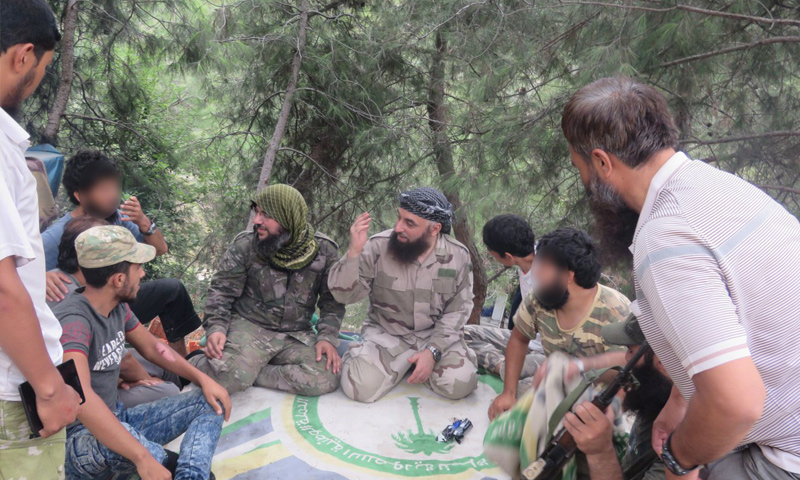
 Both leaders Abu Malik al-Tali and Abu al-Fath al-Farghali on the northern fronts of Latakia countryside - (Tahrir al-Sham)
Both leaders Abu Malik al-Tali and Abu al-Fath al-Farghali on the northern fronts of Latakia countryside - (Tahrir al-Sham)





 A
A
A
A
A
A



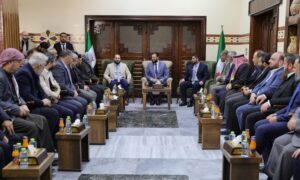
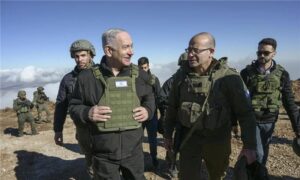
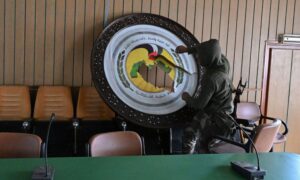
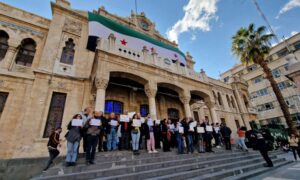
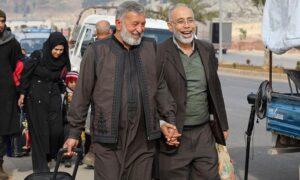
 More In-Depth
More In-Depth